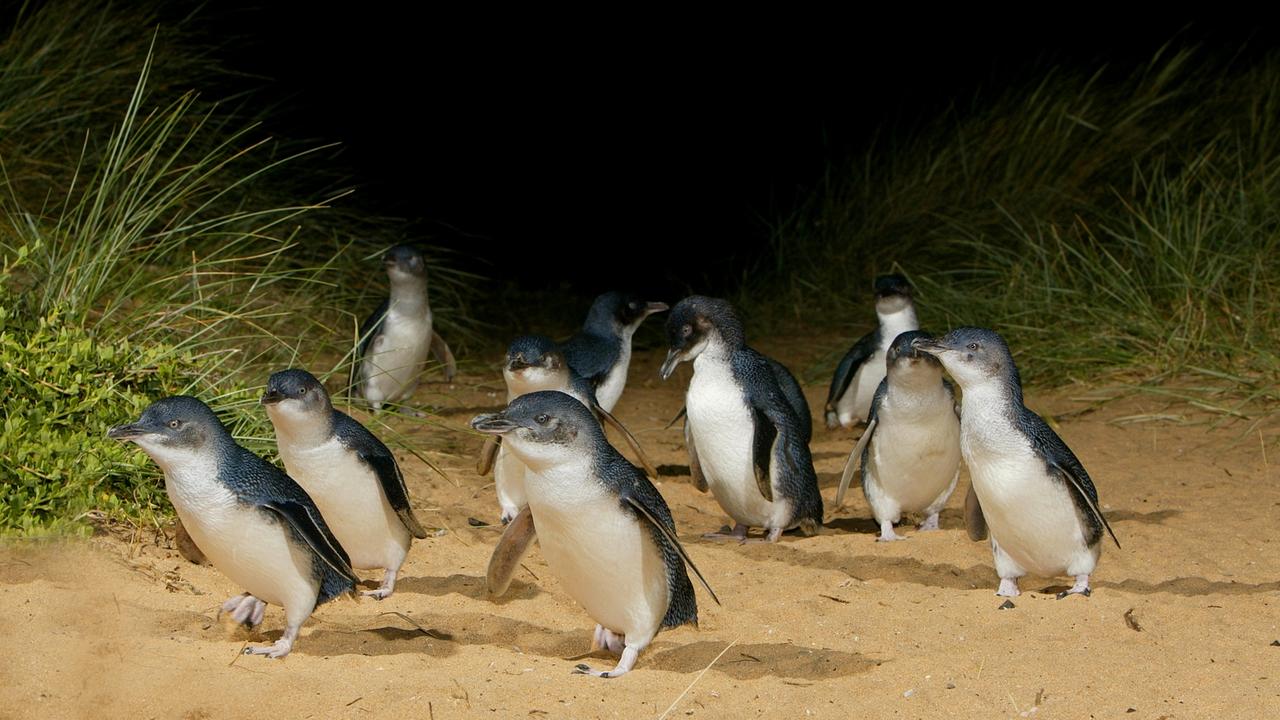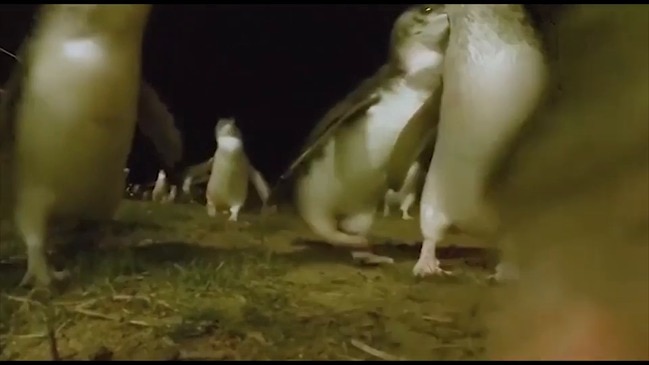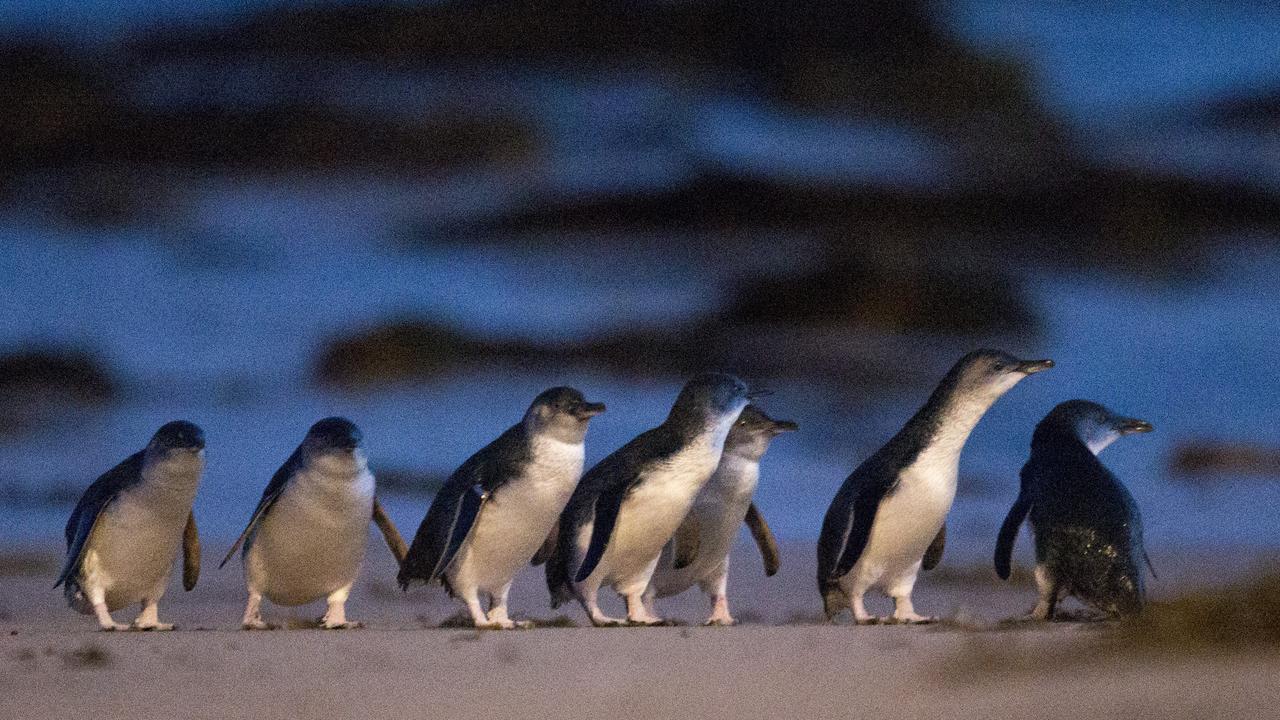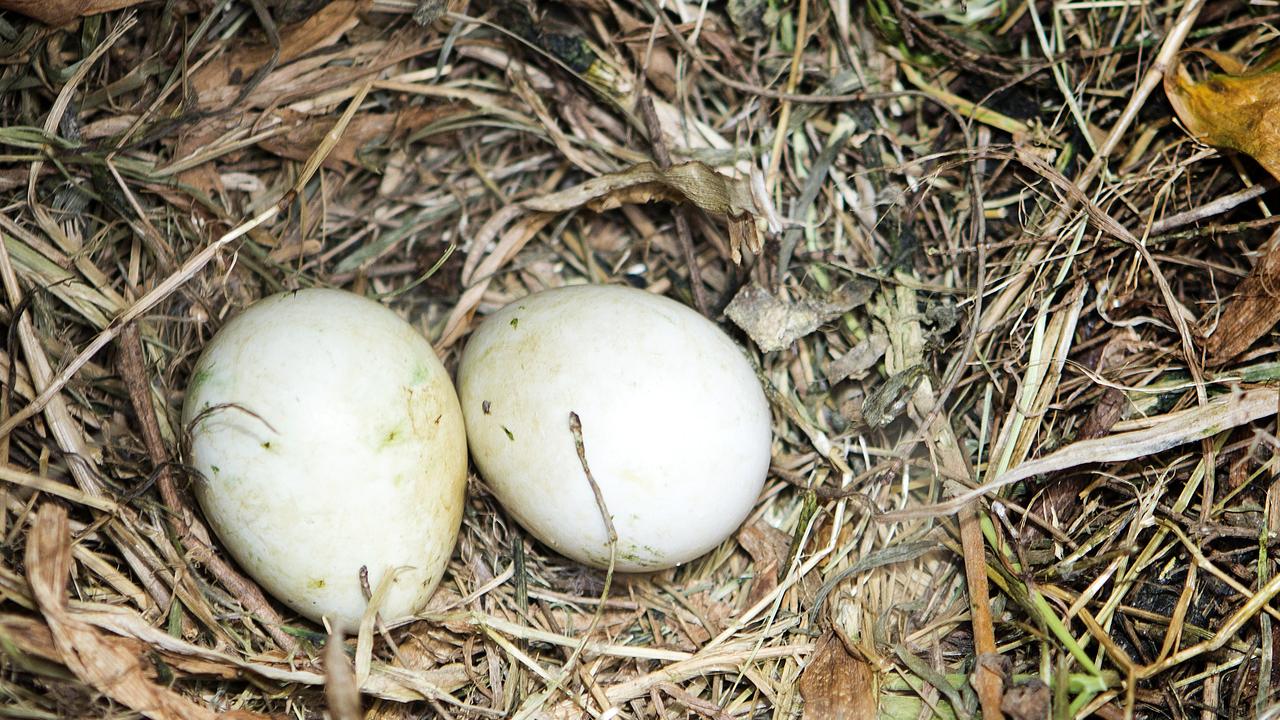All the action of the great Aussie penguin race
A famous UK sports commentator in lockdown at home has narrated Phillip Island’s penguin parade 17,000km away to make up for the lack of live sports events

READING LEVEL: GREEN
A famous UK sports commentator in lockdown at home has narrated Phillip Island’s penguin parade 17,000km away to make up for the lack of live events.
The penguins’ daily waddle to their burrows on the Victorian island has become the latest event to be narrated* by BBC commentator Andrew Cotter, after he commentated on the antics* of his labradors Olive and Mabel, which went viral online.
“I knew all about the penguins of Phillip Island before this and have visited Melbourne and the Great Ocean Road or Mornington Peninsula every year for the past 15 years,” Cotter said.
“I love it all down there so this was a natural fit.”
The daily parade of penguins, which waddle from the shoreline to their burrows, attracts thousands of visitors to Phillip Island Nature Park every year.
The park’s chief executive, Catherine Basterfield, said Cotter’s efforts would give the animals global exposure*.
“The penguins are quite comfortable in front of an audience as they are used to doing their nightly waddle in front of visitors at the penguin parade, but this kind of global recognition* goes above and beyond,” she said.
“The penguins never fail to entertain with their antics, and Andrew’s wonderful wit* has captured this beautifully.”

PHILLIP ISLAND’S PENGUINS
The species of penguins at Phillip Island is called little penguins, though Australians often call them fairy penguins.
This is the smallest species of penguin. Fully grown little penguins stand about 30cm tall.
Little penguins also live elsewhere on mostly southern coastlines of Australia as well as New Zealand and Chile
About 32,000 little penguins live on Phillip Island.

Like most penguins, little penguins are diurnal, which means they are active in the day and sleep at night.
While they are breeding and rearing chicks, penguins leave their burrows in the sand dunes at sunrise to swim in the ocean and hunt for food for the day, returning to their burrow as it gets dark.

GLOSSARY
- narrated: gave a spoken or written commentary
- antics: funny or outrageous behaviour
- exposure: be seen by lots of people, publicity
- recognition: acknowledgment that something exists or is a good thing
- wit: quick, clever sense of humour
EXTRA READING
Counting penguins and trying not to get blown away
Human-sized extinct penguin found
Antarctica’s emperor penguins go missing
Virtual safari into the wild, from home
QUICK QUIZ
- Where do these penguins live?
- Why does Andrew Cotter have time to do this?
- What is this species of penguin called?
- Name three countries where these penguins are found?
- When and why do penguins come onto the beach?
LISTEN TO THIS STORY
CLASSROOM ACTIVITIES
1. Commentating Animal Antics
Commentating the antics of animals involves creativity and a sense of fun. Andrew Cotter has done a brilliant job of finding the funny antics of these penguins and incorporating them into the scenario that the penguins were in a race to get to their burrows. Watch the video several times so you get an idea of all the things that are going on.
Try and think of another reason that these penguins are racing up the shore and do your own commentary of the video accordingly.
- Are they playing a game of hide and seek?
- Is there a hot dinner waiting for them?
- Are they racing to get the specials at the Christmas sales?
- Are they escaping from a mysterious creature they saw on the beach? Or in the water?
To commentate your own version of this footage, watch the video with the sound down. Watch it several times and note down things that might sound funny in the scenario you have chosen. Place these in the order that they happen in the footage and fill in the rest of the commentary around them to explains the scenario. You should end up with a script. Practice reading your script in time with the video using expression to make it sound real. If you can, record yourself reading the script and present it to a family member or your class as they watch the footage. Alternatively, you could perform your commentary in time with the footage.
Time: allow 40 minutes to complete this activity
Curriculum Links: English, The Arts- Drama, Critical and Creative thinking
2. Extension
Create a fact file about the little penguin species. Some information can be found in the article and some you might need to do some more research for. Include the following information:
- Name
- Distribution/Location (where you can find them?) Include a map.
- Physical features/description
- Habitat
- Diet
- Lifestyle/Habits (how do they live?)
- Other interesting information
- A labelled diagram
Time: allow 40 minutes to complete this activity
Curriculum Links: English, Science
VCOP ACTIVITY
I Spy Nouns
Nouns are places, names (of people and objects), and time (months or days of the week).
How many nouns can you find in the article?
Can you sort them into places, names and time?
Pick 3 nouns and add an adjective (describing word) to the nouns.
HAVE YOUR SAY: What would you like Andrew Cotter to commentate? Or what would you like to commentate?
No one-word answers. Use full sentences to explain your thinking. No comments will be published until approved by editors.

